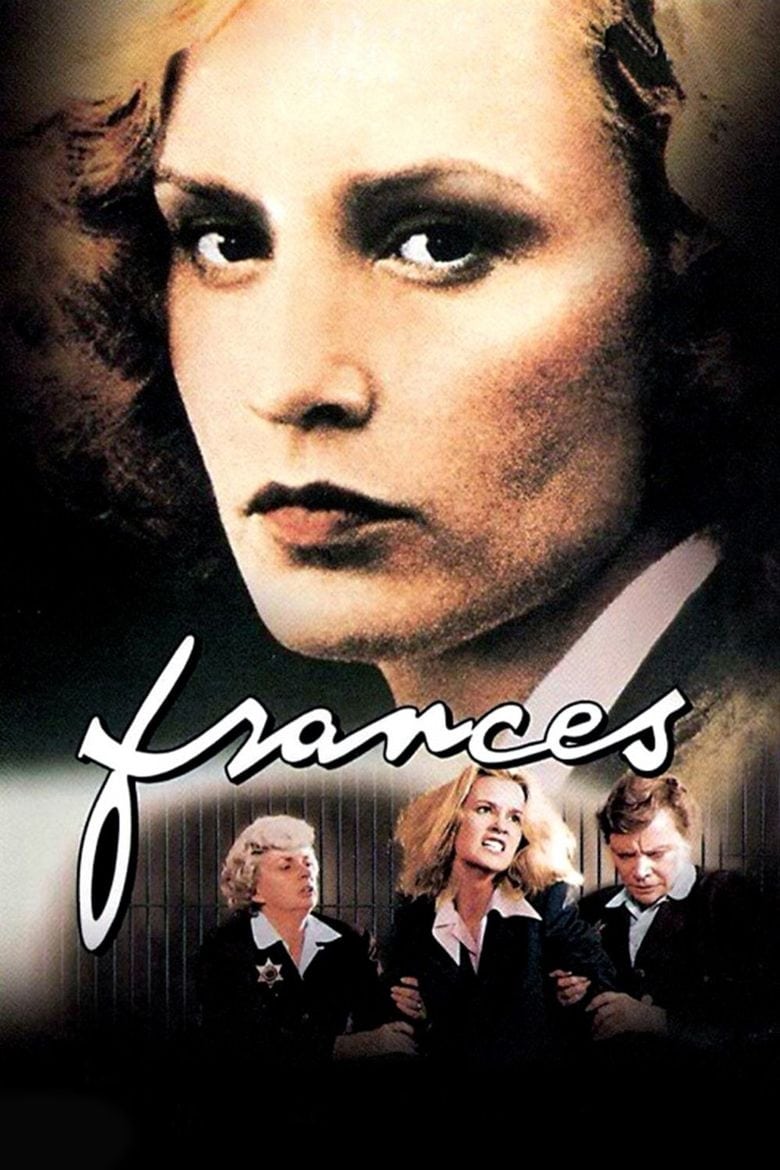
The true story of Frances Farmer's meteoric rise to fame in Hollywood and the tragic turn her life took when she was blacklisted.
20 Nov Frances (1982)
Metaexploitation
I continue to be astounded at films that are self-destructively self-referential. That’s where a story is about a certain trend, often in filmmaking, that is portrayed as evil. But at the same time, with the same players, the form of the film is precisely along that trend.
Here is the story of a fragile girl, pretty and accidentally thrown among radical ideas which presumably have an intelligent edge. She is destroyed by a system, American in the large and Hollywood in the small which wants the pretty but unradicalized. The tone is what would be called “Susan Saradonized:” preachy by example and reliance on emotion rather than reason. As such projects go, it is less tedious than most just because Jessica is charming and works hard.
But all the way through, we know a few things about it that make us uncomfortable. This is a beauty who exploits her beauty with our cooperation, who after all was introduced to us in “King Kong.” Later, she would become a “real” actress. In ‘Titus’ for instance, she uses sex in an outrageously self-referential way, outacting and outsmarting Tony Hopkins. But here, she is just expected to be endearing and pretty. Why place some nude scenes in the story? The dissonance is pretty overwhelming.
Here, we also know that Jessica started out as a dumb model, something of an elite floozy and by stint of pure discipline was able to grow smarts — but only through mentors like Sam. At this point, Sam was already a radical success in theatre, had a weird film experiment with Dylan and entered the world of intelligent film with Malick. So the play between their on-screen characters is oddly off-kilter from the more important film events behind the creation of two important film people.
Posted in 2003
Ted’s Evaluation — 2 of 3: Has some interesting elements.


No Comments